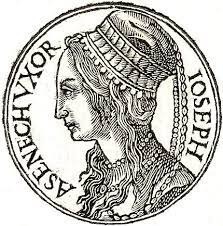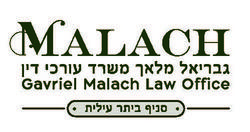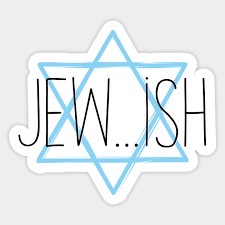Raboyseyee and Ladies,
Jew-ish
Welcome to Parshas Miketz where Yoisef is -finally- freed from prison, finds himself standing before king Paroy, and is able to interpret Paroy’s dreams to his satisfaction. As a reward, he is instantly elevated to Viceroy of Egypt. That’s quite the rise from where he had spent -according to many a medrish- the past 12 years. And what else is new? Paroy gives Yoisef a wife. Yes, indeed Yoisef gets married this week to a nice shiksa by the name of Osnas bas Poitifera. A what? And just like that, alarm bells went off by kimat every exegete; how could Yoisef, the one we call Yoisef Hatzadik, in fact the only one with that appellation- marry a shiksa? Couldn’t be! Impossible?

So happens that it never ceases the heylige Ois how our sages of the heylige Gemora and in particular the medrish, mamish reject the teachings of the heylige Toirah as given over by the RBSO to Moishe. They resort to a smorgasbord of mental acrobatics to claim new facts. The RBSO did not mean what He said and that words used by Him, mean other things. Shreklich! Did the RBSO not know how to communicate? Moreover, they claim to be the Toirah’ s most ardent vanguards. Nowhere is this more blatantly obvious than in their response to intermarriage as found in numerous examples throughout the heylige Toirah and Novee.
Ober is this emes? Did at least several of our Toirah personalities -more in the Novee- marry out? And before we answer the question, let us go back and chazir a few marriages described in the heylige Toirah. Let us see just whom our most famous Toirah personalities married; you decide. Did the people we revere most, marry out? Or, was it the case -as many a Rashi and medrish will claim- that they were all either Jewish from birth, or had properly converted prior to marrying our Toirah personalities? In no particular order, here are but a few examples; thye are others to be sure.
Of course we all remember Shlomo Hamelech (King Solomon) who is alleged to have known at least 1000 women “in the Biblical sense,” if you chap, as wives and concubines. His shenanigans are recorded in the Novee, check it out in Sefer Melochim. There we can read that his favorite wife was the Egyptian, Paroy’s daughter. He also took wives among the Moabite, Ammonite, Edomite and Hittite nations. Did he covert them all? Or, was each of them magically Jewish but by chance born into non-Jewish families? Of-course there are reasons cited for his multiple marriages: he wanted to keep the peace; as well, he seemingly also wanted a piece of each. Shoin. Was the RBSO angry with Shlomo? Did He chastise Shlomo for these foreign relations? Was he punished? Not! Farkert: Shlomo was honored by having the Bes Hamikdash (Temple) in Jerusalem built during his reign. And while mentioning kings, let’s shout out everyone’s favorite, Dovid Hamelech (King David) who also escaped criticism for his many foreign wives. Grada, the Novee does tell us that he was harshly rebuked by Nosson Hanovee (Nathan) for his marriage to a nice Jewish wife by the name of Bathsheva. So happens that she was married to someone else at the time, and the good king arranged for her innocent husband to be killed in the front lines of battle so he could properly marry her. One more detail: she was already pregnant at the time. Shoin, it’s good to be the king. And guess what? Both kings mentioned above took their wives way after Matan Toirah, way after the heylige Toirah specifically forbade most of their actions. I repeat: it’s good to be the king.
In a few more parshas we will meet perhaps the GOAT (greatest Jew), Moishe Rabbaynu (Moses our teacher) who married Tzipporah, a dark-skinned, non-Jewish Midianite. Mamish! Nice, ober did Moishe marry more than one shiksa? According to one medrish, after Moishe ran away from the king’s palace -the king wanted to kill him- he ran off to a place or nation called named Kush where he married yet another shiksa. Was the RBSO upset with Moishe? Seemingly not, at least not over his choice of wives.

Just last week we read how Yehudah married a bas-kenani, in other words, a Canaanite shiksa. Yehuda’s choice to wed an ostensibly Canaanite woman “Bas Ish Canaani” (the daughter of a Canaanite man) appears to fly in the face of the traditions that were begun by Avraham and continued down through subsequent generations of Avraham’s descendants. Avraham was quite explicit when he told Eliezer (24:3) “Do not take a woman for my son of the Canaanite daughters among whom I live.” Hogor, after their banishment from Avrohom’s house, arranged for Yishmoel to marry an Egyptian woman rather than a Canaanite one. And when Eisav ignored the injunction originating with his grandfather, and married two Canaanite women (26:34), the heylige Toirah let its readers know in no uncertain terms how Yitzchok and Rivka reacted to their son’s decision: Says the heylige Toirah (Bereishis 26:35) “And they (the Hittite women) were a bitterness of spirit to Yitzchok and to Rivka.” Eisav eventually appeared to realize how negatively his parents felt about the women he married, and tried to at least partially appease them by marrying an additional wife from the family of Yishmoel. He was known for honoring his parents. And let’s not forget that Dinah’s rapist was a Canaanite; we can kler that this factoid added insult to injury and it’s efsher no wonder that Shimon and Levi took out their swords and killed all males. Oy vey and what to do? Ober what did Yehudah do? He married a Canaanite and shoin.
And what about Yehuda’s brothers? Whom did they marry? Beis Yaakov girls? Girls from a nice Lakewood home? Not! In the Sefer Hayoshor we read this: The rest of the brothers did not marry Canaanites. But………… Levi and Yissochor marry two granddaughters of Yoktan ben Ever. Dan married a Moabite shiksa. Gad and Naphtali marry two great-granddaughters of Nachor. Asher married a Yishmaelite and then a granddaughter of Yoktan. Zevulun married a Midianite. Binyomin marries an Aram-Zovah-ite and a daughter of Zimran ben Avraham. Was the heylige Gemora happy to read this? Not! Says the heylige Gemora (Pesochim 50a) that the very premise of the question; that Yaakov’s sons married Canaanite women is wrong. Indeed, the very notion is so inconceivable that that the Gemora interprets the entire Yehudah and his shiksa wife to state with certitude that it’s not emes. Yehuda did marry a Canaanite wife but the word Canaanite means something else entirely:
דכתיב וירא שם יהודה בת איש כנעני. מאי כנעני? אילימא כנעני ממש – אפשר בא אברהם והזהיר את יצחק, בא יצחק והזהיר את יעקב, ויהודה אזיל ונסיב? אלא אמר רבי שמעון בן לקיש: בת גברא תגרא
“For it is written ‘And there Yehuda saw the daughter of a Canaanite man’. What is meant by Canaanite? If you say an actual Canaanite, is it possible that Avrohom warned Isaac, and Isaac warned Jacob [not to marry Canaanites] and Yehudah went and marries [one]? Rather Said R. Shimon ben Lakish, [it means that] she was the daughter of a merchant. And now you know!
But what about the holy shvotim? According to Reb Cahim Paltiel, even according to the opinion that the tribes married Canaanites, it is possible that they weren’t ethnic Canaanites, but only resident there. You go to love these medroshim:
ר’ יהודא אמר כנעניות היו. וצ”ע דסוף פרק אילו עוברין אמרינן בת איש כנעני אילימא בת כנעני ממש, אי אפשר, בא אברהם והזהיר בא יעקב והזהיר ויהודה נשא כנענית, ואילו הכא אמרינן השבטים נשאו כנעניות… ושמא י”ל דלא היו אלא מארץ כנען
Based on the above understanding the brothers didn’t marry Canaanites though brother Shimon seems to be the exception that proves the rule. As Radak writes in Genesis (38:2):
בת איש כנעני …וכנעני כתרגומו סוחר היה משאר האומות והתגורר שם, כי בני יעקב היו נזהרים מלהתחתן עם בנות כנען כמו האבות, כי שמעון שלקח אשה מבנות כנען זכרו לגנאי והפרידו מאחיו ואמר ושאול בן הכנענית:
The daughter of a Canaanite…And ‘Canaanite’ is identical in meaning to its Targumic explanation; that he was a merchant from a different nation [other than Canaan]. For Simon who took a wife from the daughters of Canaan, was mentioned negatively, and [listed] separately from his brothers, and it is said ‘and Saul the son of the Canaanite’.
Are we done yet? Not! As mentioned, mamish in our parsha, Yoisef will marry Osnas and together they will have two children. Was Osans bas Poitifera a nice Jewish girl from a nice Jewish family? Not according to the heylige Toirah which likely would have told us that there were jews living in Mitzrayim at the time and Paroy, knowing that Yoisef was very strict about his marriage partner- went out and found him a good shidduch. Ober the heylige Toirah does not mention any of this. But it does very specifically tell us her name, her father’s name, and that her father was a Canaanite.
It goes without saying that our Sages were up in arms over this wedding and needed to fix the glaring problem. What to do? Like any good lawyer, our sages sat down and came up with scenarios. They created what the lawyers today refer to as plausible deniability. They created scenarios where kimat in every case they stumbled across- wherever a personality strayed by marrying out, the person was cleaned up, converted before the wedding, or even somehow Jewish from birth.
 What to do about Osnas marrying Yoisef? The answer was mamish staring them in the face: make Osnas a Jewess from birth. Was she in fact Jewish? Perhaps as Jewish as George Santos who claims that he is Jew—ish! The marriage of the chaste and pious Yoisef to the pagan Osnas was problematic for strictly observant Jews. What to do? Targum Yoinoson (Pseudo-Jonathan) solved the problem by making Osnas the daughter of Dinah, who was raped by Shechem Jewish from birth. What? Osnas bas Poitfera was a nice Jewish girl? Well blow me down. Indeed she was – at least in this medrish- and medrish -as you well know- had/has license to solve difficult issues and conflicts. Yoisef marrying out was taka difficult, too much of a bitter pill to swallow. What to do? The brilliant minds of the medrish sat down and reverse engineered this issue until Osnas was no longer the daughter of some pagan and was now a nice yeshiva girl from an outstanding family, the Yaakov Ovenu family. In another version. Osnas, an Egyptian shiksa, converts to Judaism in order to marry Yoisef. Want more on this medrish? Here we go.
What to do about Osnas marrying Yoisef? The answer was mamish staring them in the face: make Osnas a Jewess from birth. Was she in fact Jewish? Perhaps as Jewish as George Santos who claims that he is Jew—ish! The marriage of the chaste and pious Yoisef to the pagan Osnas was problematic for strictly observant Jews. What to do? Targum Yoinoson (Pseudo-Jonathan) solved the problem by making Osnas the daughter of Dinah, who was raped by Shechem Jewish from birth. What? Osnas bas Poitfera was a nice Jewish girl? Well blow me down. Indeed she was – at least in this medrish- and medrish -as you well know- had/has license to solve difficult issues and conflicts. Yoisef marrying out was taka difficult, too much of a bitter pill to swallow. What to do? The brilliant minds of the medrish sat down and reverse engineered this issue until Osnas was no longer the daughter of some pagan and was now a nice yeshiva girl from an outstanding family, the Yaakov Ovenu family. In another version. Osnas, an Egyptian shiksa, converts to Judaism in order to marry Yoisef. Want more on this medrish? Here we go.

What we know with certainty is this: Osnas was a daughter to a family named either Potiphar or Potiphera. Which one? Ver veyst. Or, was she? Was she a real daughter? A biological one? More below. Who was Yoisef’s real father-in-law? Potiphar or Potiphera? Ver Veyst? Shoin, let’s make believe that taka we side with Rashi and that Yoisef married Potiphar’s daughter and that Potiphar was married to Mrs. Potiphar, she the same person who tried valiantly to seduce Yoisef before accusing him of sexual abuse to efsher include attempted rape. And the shaylo is azoy: why would Yoisef consent to marry Osnas the daughter of his accuser, the very person who had him locked up for over a decade? Taka an excellent question. Stockholm syndrome? We must assume that Yoisef had hard feelings, if you chap. Ober the question is not good enough for our sages of the heylige Gemora and medrish who also gave this much thought. And while several answers are proffered, we shall leave those for another day as our topic of interest is Osnas and her background.
Whomever his in-laws were, no one argues that Yoisef married Osnas and had two boys from the union. And no one disputes that both children were well-liked by their grandfather and that both went on to become tribal leaders, shvotim mamish. So far so good until our sages of the medrish turned ghostly white when they read that Yoisef married a shiksa from an Egyptian family. Yoisef married the shiksa daughter of an Egyptian priest? Say it’s not so! He married a girl who grew up worshipping Egyptian deities? She did! Yikes! Is that what the RBSO had in mind when He allowed Yaakov to appoint Menashe and Ephraim as tribal leaders? Was the RBSO ok with the fact that at least two of the shvotim would be married to shiksas? Let’s recall – from above- that Yehudah married a “bas K’nani.” Is the heylige Toirah telling us that Yoisef haTzadik (the righteous), the same person who was able to withstand and rebuff sexual advances from Mrs. Potiphar would then then marry out? Say it’s not so please. Would Yoisef’s two children, born to a shiksa -goyim mamish- have gone on to become the source of the famous brocho we bestow on our children Friday nights? Would Yaakov have declared that Yoisef’s children are considered his and each given his own sheyvet to run were the boys but two shkotzim? Goyim mamish? How did this come about?
And the answer in one word is a big no to all these questions. The heylige Gemora and the medrish could not stomach the thought and therefore banished it. Menashe and Ephraim could not possibly have been born to a non-Jewish shiksa. Ober, what to do when the Toirah itself tells us that Osnas, Yoisef’s wife was the daughter of Potiphera? Was Potiphera Jewish? Not! Is there mention of hir or her conversion? Not! Ober not to worry because the medrish pondered all these questions and gave the thought of a non-Jewish Osnas, a resounding thumb down. It could not be! Fartig! But it was so, and so the heylige Toirah tells us befeirush (in the text itself). What to do? How could Osnas the daughter of a shiksa Potiphera be Jewish when her mother clearly wasn’t? Not to worry!
Our sages of the medrish were mamish in a quandary over this issue. They could not change the text of the Toirah heaven forbid, but what they could do, and what they did do, was go back, create a back story, a prequel so to speak, and find a clever way for Yoisef’s kids to have become Jewish without a conversion. In fact, when all was said and done, Osnas and Yoisef’s children were suddenly not just Jewish, but also Jewish from birth. And once Osnas was Jewish from birth, she was suddenly Yaakov’s own granddaughter. And that’s why Raboyseyee, you have to love our sages of the medrish. They were an incredible bunch with unlimited intellect and above all, imagination. Well, blow me down: And that’s how and why those who study the heylige Toirah, Gemora and medrish, have their wits about them, and the wherewithal to mamish rewrite history, and change the meaning of words t their liking, while never arguing directly with the text. And because it’s the last day of Chanukah 2023 and we could use some Moshiach light just about now, the heylige Ois will regale you with some beautiful medrish on how Osnas was not only Jewish from birth, but also a key player (notwithstanding her youth) in saving Yoisef’s life from imminent death.
Let’s begin with what we know as factual. The heylige Toirah tells us when Yoisef was elevated to the very pinnacle of power in Mitzrayim as Paroy’s Viceroy, he married Osnas the daughter of Potiphera, the Minister of Oin. The heylige Toirah does not explicitly discuss Osnas’s life, beyond marrying Yoisef and bearing Ephraim and Menashe. She appears shrouded in mystery. Given the lack of information -what the Ois typically refers to as a huge lacuna- various medroshim came along and used literary license to fill in the blanks. Says the medrish (Bereishis Rabbah 86:3, Midrash Aggadah, Pirkei D’Rabbi Eliezer 38:2, Yalkut Shimoni on the Toirah 134:1, Rashi and Chizkuni commentaries on Bereshis 41:45) that Zulycah, Potiphar’s wife was barren. Shoin. Because she was barren, she and Mr. Potiphar -efsher the first Ohel parents- went out and adopted a nice Jewish girl by the name of Osnas who just happened to be Yaakov’s own granddaughter. What could be more gishmak? But it gets better: The heylige Gemora (Soitah 13b) notes Potiphera was actually Potiphar, Yoisef’s erstwhile master. Thus, Osnas, a nice Jewish girl from birth, and Yoisef, a nice Jewish young man in his late teens, uncle and niece mamish, lived in the same household, where Yoisef was a slave and Osnas was already considered a royal. Mamish amazing! How did Osnas get there? Hold on, we will address that below.
There’s more: Osnas had Yoisef’s back behind the scenes. Says the medrish (Yalkut Shimoni 146:3), azoy: in the aftermath of the incident when Potiphar’s wife Zulycah tried to seduce Yoisef, it was Osnas who stood up for Yoisef. (Seemingly he would not stand up for Mrs. Potiphar, if you chap.) Potiphar, upon first learning of the sordid affair, was initially determined to execute Yoisef. However, Osnas intervened and secretly testified to Potiphar, swearing to him that Yoisef was innocent. She was convincing. Moreover, it appears Potiphar did have his doubts, because he ultimately placed Yoisef in the special white-collar prison reserved for royals and ministers. Says who? Check out Sefer HaYoshor (Bereishis, Vayeshev 19) which reports how the priestly court examining the matter wondered why, if Yoisef was the aggressor and Zulycah the victim, was only Yoisef’s garment torn. Excellent detective work!
The medrish notes Osnas’s actions were particularly meritorious. How so? She took real risk becoming personally involved in this matter. She defended Yoisef against the interests of her adoptive mother, who by virtue of her power and position was presumed to be telling the truth. She also argued with her powerful adoptive father, a high government official in defense of a slave. All this, despite the fact that Potiphar preferred just to execute Yoisef and cover-up the entire embarrassing incident. Her courage and mettle in defending the innocent Yoisef was truly inspirational and because of her Yoisef was spared. The medrish goes on to report that the RBSO took note of her virtuous conduct in saving Yoisef and rewarded her by making her his wife and the progenitor of the two shvotim fated to be born to them. Wait! Adoptive mother and father? Osnas was not a natural born child but instead an adopted daughter? Well, blow me down. Doesn’t the heylige Toirah refer to her as the daughter of Potiphera? It does! Back to that medrish soon, ober listen to this:
Rashi quoting the medrish (Bereishis Rabbah 92:5, Tanchuma, VaYigash 4:9, as well as Rashi commentary on Bereishis 43:34) also tells us that Osnas played a number of important roles in the background. She was present when Yoisef made the feast for his brothers. Says Rashi: חמש ידות FIVE TIMES — His own portion that was due to him alike with his brothers and additional portions given to him by Yoisef, Osnas, Menashe and Ephraim. Says another medrish (Midrash Yelamdenu 29) that Osnas was also there to care for Yaacov. Indeed, as Yaacov’s caregiver, it was Osnas who likely sent word to Yoisef – next week’s parsha- that Yaacov was dying and to come and bring the kids, Ephraim and Menashe to receive final brochis before his passing.
And says the heylige Zoihar in several places (1:88a:3, 2:153b:5, 2:157b:8 and 2:87b:5) that Osnas was present in the room that fateful day, when Yaacov attempted to bless Yoisef and their two sons, Ephraim and Menashe. It seems that Yaacov balked when he first tried to bless the boys. There appeared to be an interruption in Yaacov’s connection to the Divine Presence, (his Ruach HaKoidesh), which guided his blessings to achieve the appropriate outcome. Yoisef was afraid this occurred because he lacked some merit. He therefore touted Osnas and her merit, as worthy of blessing. Yaacov seemed to acquiesce, but before he applied himself again, he asked that Osnas present her marriage documents. This she did and then Yaacov was able successfully to bless the kids. That entire story and much more medrish on Yoisef’s marriage certificate for another time.
The bottom lines: Osnas’s covert role in a number of seminal events in the heylige Toirah is medrish treasure; gold mamish. It began with her origin. As recorded in the heylige Gemora, Medrish, and Targum, Osnas was an innocent child born to her mother Dinah, a victim of sexual assault by that swine Shechem. So upset were her brothers, they wiped out the entire city. Ober, what to do about little Osnas who was a constant reminder of indignation and illegitimacy? Were the righteous brothers ready to accept her? Listen to this: Says the Chizkuni quoting the medrish in Torah Shilema azoy: Yaakov hid her because his sons wanted to kill her. The holy shvotim-to be- wanted to do what? Here we go again, oy vey and what to do? Yaakov sent Osnas away because she wasn’t exactly legitimate even though she was a Jewish child from a Jewish mother? Oy vey! Says Pirkei D’Rebbe Eliezer azoy: Yaakov sent her away seemingly to save her life, and she hid behind a bush. And if all that’s emes and of course it’s possible, how did Osnas get to Egypt in the first place? Says another medrish azoy: Yaakov tied a locket or medallion around her neck which stated she was his granddaughter. And then? The Malach Gavriel was given a new assignment. He came back down and whisked baby Osnas down to Egypt. And then? That very day, Potiphar went out for a stroll with his lads, and as they got to the wall, they heard the sound of a crying newborn. He said to his lads “bring me the child.” He saw the locket and all written on it. Potiphar said to his slaves: “This girl is the daughter of important people, bring her to my home and get a nurse.” Potiphar’s wife took her in and raised her. And since he raised her, she is referred to as his daughter.

The bottom lines: let us remember that the identification of Osnas bat Potiphera with Dina’s daughter is medrish. Are we compelled to accept this as historical fact any more than we must accept the historicity of any other medrish? Ver veyst? And what the hec does that word mean? Says Webster’s New World College Dictionary, azoy: Historocity is a NOUN and means the condition of having actually occurred in history; authenticity. The identification of Osnas with Dina’s daughter taka wraps up many loose ends very neatly and especially rectifies the issue of Efraim and Menashe being goyim. It also refutes the impression of Yoisef’s assimilation -marrying out- into Egyptian culture. Our sages set out to emphasize that Yoisef and the family he created in Mitzrayim were Jewish from the get-go despite their membership in Egypt’s ruling elite, and so they did.
Ober is all this emes? Is that how it went down? Can the medrish re-write or re-interpret what the heylige Toirah told us? Says the Maharal MiPrague (Be’er Hagolah, Fourth Be’er p. 51) and we quote, azoy: “most of the words of the Sages were in the form of metaphor and the analogies of the wise… unless they state that a particular story is not a metaphor, it should be assumed that it is a metaphor. Therefore, one should not be surprised to find matters in the words of the Sages that appear to be illogical and distant from the mind.”
Another bottom line: the story of how Osnas (Asenath), priest of Heliopolis, who seemingly -in the medrish at least- converted to the worship of the G-d of Israel and married Yoisef is mamish ingenious and so very creative. It’s this medrish and many others that the heylige Ois cannot stop reading.
The final bottom line: The greatest Jewish heroes of the heylige Toirah seem to have had a penchant for foreign women. Yoisef, the savior of the Yiddin and the Mitzrim during the famine, married the Egyptian Osnas. Did the RBSO oppose his intermarriage? Seemingly not. As mentioned, we do bentch (bless) our kids Friday night by invoking the names of the two children born to him and his shiksa wife.
A gittin Shabbis!
The Heylige Oisvorfer Ruv
Yitz Grossman
